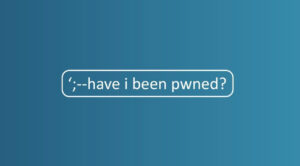Here’s How To Find Out If Your Number Was Ever Leaked On Facebook

A piece of recent news that shook the world was the Facebook data leak. After all, 533 million is not a small number, and when that is the number of how many Facebook users’ personal data was leaked onto an online forum, this figure becomes even more severe.
There are a total of 2.7 billion monthly active users on Facebook as per reports, making the likelihood that individual is one of those 533 million users whose data was leaked increase significantly.
Facebook claimed in a news article regarding the leak that the data was taken through a technique called scraping, which detects information obtained from accounts with the help of automated software.
The official statement of Facebook read, “We believe the data in question was scraped from people’s Facebook profiles by malicious actors using our contact importer before September 2019. This feature was designed to help people easily find their friends to connect with on our services using their contact lists.”
The product management director at Facebook, Mike Clark said “When we became aware of how malicious actors were using this feature in 2019, we made changes to the contact importer. In this case, we updated it to prevent malicious actors from using software to imitate our app and upload a large set of phone numbers to see which ones matched Facebook users,”
This is clearly not the first time when Facebook has been involved in a data scandal. If people still remember, in 2018, a now-defunct consultancy firm Cambridge Analytica had secured the personal information of 87 million Facebook users.
‘This Is Your Digital Life’ was the app that was used to collect the data, it basically accumulated information from everybody who used the app, along with their Facebook friends.
A month after this, Facebook announced that its ability to look for a Facebook account using an individual’s phone number or email address had been suspended. This move came after hackers had used this feature to scrape the personal information of the users.
The following year, another data breach happened at Facebook. In 2019, 419 million records of Facebook users were found on an unsecured server which included 18 million records from the UK, and almost 133 records from accounts in the US.
During that time, a company’s spokesperson explained that the data that was leaked was taken from Facebook before the ability to search for accounts using phone numbers was discontinued by the company in April 2018.
While talking about the latest leak, Facebook has announced that they recommend users to update the ‘How People Find and Contact You’ control provided in the app, along with carrying out regular ‘privacy check-ups’ to ensure that their settings are suitable.
However, this blog offers little to no help to find out whether an individual’s data is included in the leak that has happened recently. Thankfully, there is another website that can help the users regarding this information.
“Have I Been Pwned” is a website created by Australian security expert Troy Hunt, that assists people to securely enter their email address to evaluate if their information has been included in any of the data leaks.
With the latest Facebook data breach, Hunt has informed the people that now they can also enter and search phone numbers on this website when regarding the specific leak from the social media company. He clarified that entering the phone numbers will not work in case of past breaches.
Hunt wrote a blog post that read “The phone numbers were easy to parse out from (mostly) well-formatted files. They were also all normalised into a nice consistent format with a country code. In short, this data set completely turned all my reasons for not doing this on its head”.
People can check if their phone numbers were also a part of the leak by entering their number on this website in the international format. People in the UK would see the 0 at the beginning of their number replaced with +44.

